Keeping tradition alive, in hopes to one day return home to Crimea
A map of Crimea is drawn on the blackboard as a teacher educates students on the history of this state. Children, 8 and 9 years old, carefully take notes as some raise their hands to ask questions. This school is a program run by the non-profit, Krymska Rodyna, and hosts lessons every Saturday on all Crimean Tatar traditions. From history lessons to dance lessons, classes are offered to youth starting as early as 4 years old to adults.
Five years ago this month Crimea was occupied by Russia, and conflict broke out in eastern Ukraine, causing 1.5 million persons to be displaced. Many, including Crimean Tatars, fled to major cities, such as Odesa, Lviv, and Kyiv, thus starting new lives.
Anife Kurtseitova, 37, has been an activist fighting for the rights of the Crimean Tatar community. A strong advocate, she has participated in numerous interviews, educating others about her culture, and hosted fundraising campaigns for Crimean children of political prisoners. She decided not to let tragedy determine the fate of her community.
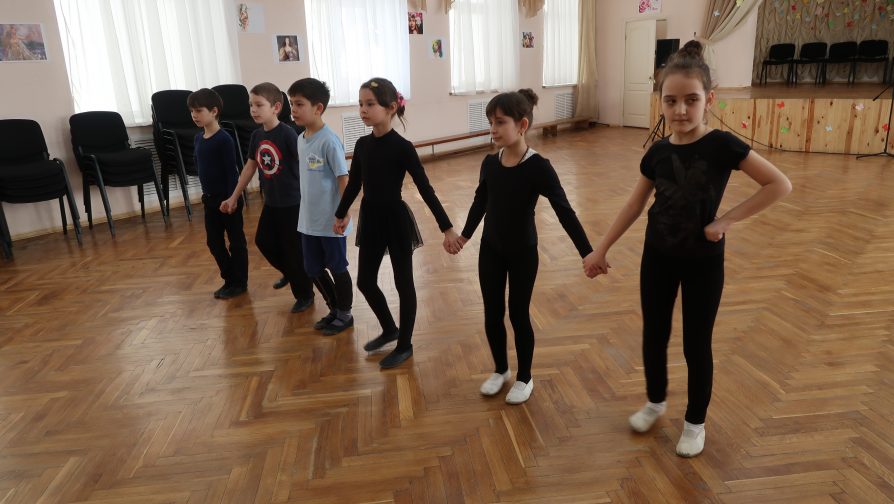
Building an NGO organization after moving to Kyiv, she began a Saturday school program focusing on all things relating to the Tatar culture. While negotiating with the Department of Education , she managed to arrange the permission to use several premises on the basis of one school in Kyiv during the time free from classes.
Parents and all community of IDPs from Crimea hope that the city authorities will pay attention to the successful activities of NGO and will provide premises for the creation of a unique Crimean-Tatar center for children. Given the fact that over the last year the number of visitors to the center has doubled. Currently, there are 100 pupils and about 50 families, who would like to join the school because there are nothing similar in Kyiv.
The children are divided by age, covering specific categories; dance lessons, music lessons, history lessons, and even the Tatar language. Traditional Tatar embroidery classes are also offered for adults. The students also host public dance performances in traditional costumes.
Running up and down the stairs speaking to mothers who are helping her coordinate the classes, Anife quickly caters to each teacher’s needs. In the waiting room, parents laid out cakes and desserts as they laughed and shared stories about their children. Everyone knew everyone, and the parents were just as dedicated as Anife in keeping the program running.
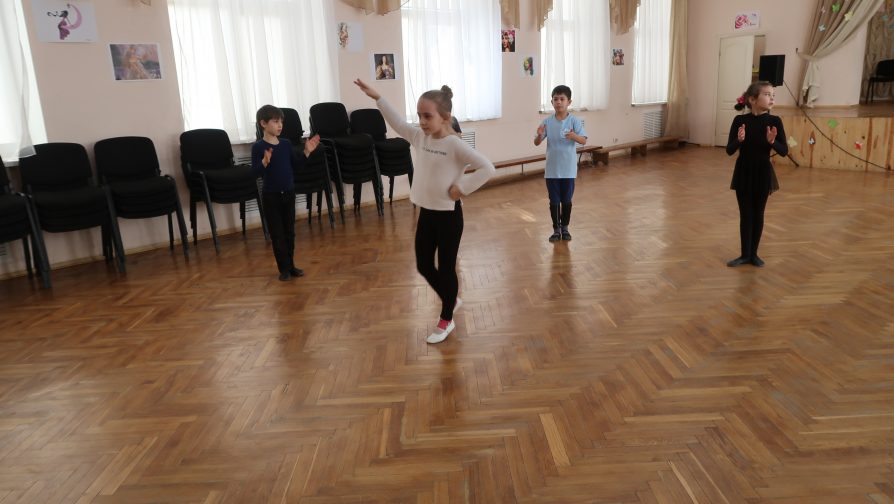
“It is important for me to keep our traditions and languages alive. We are waiting when the Crimean occupation will be over and all these families will be able to come back home,” says Anife.
Though it is unknown when this day will come, Anife refuses to give up hope, finding creative ways to keep the spirit of her heritage alive. Her pride represents leadership, and with her guidance the Tatar community became a team. With their efforts, their culture will live on to future generations regardless of any difficulty.
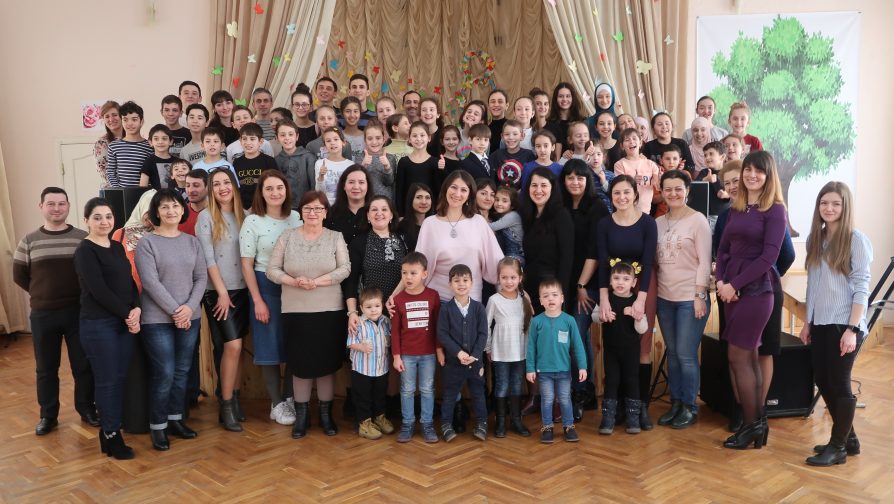
Community-based approach a core to protection and transcends to UNHCR’s work with displaced population. UNHCR Ukraine protection strategy is built on strengthening community based protection mechanisms initiated by the IDPs and host community to identify and respond to protection needs and create coping mechanisms.
UNHCR Ukraine community based protection activities included regular dialogue and communication with IDPs through protection monitoring and Participatory Assessment and Support to small community initiatives. The project was aimed at enhancing capacity of the NGO consisted of initiative of Crimean Tatar IDPs to provide activities for Crimean Tatar children aimed at maintaining their ethnic identity and cultural traditions on the mainland of Ukraine. In 2015 and 2016 UNHCR provided technical assistance (microphones and audio system) and 10 stage outfits for children to the NGO for conduction of classes of Crimean Tatar music, vocal and dancing for the children.
Page 17 of 35
-
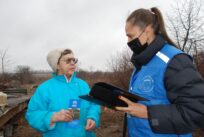
UNHCR’s new protection monitoring tool helps inform humanitarian and development programmes in eastern Ukraine
2 Feb 2022UNHCR presented its new report on the protection situation in conflict-affected settlements
-
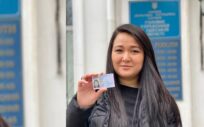
Strengthened protection for stateless people in Ukraine: 737 stateless persons applied to determine their status in 2021
31 Jan 2022Across Ukraine, more and more people are becoming “visible” as they receive positive decisions from the Ukrainian state on recognition as stateless.
-
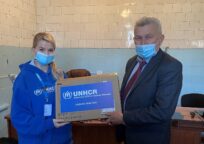
Through computerisation, UNHCR helps increase access to health services along the contact line in eastern Ukraine
26 Jan 2022“Last year we saw a fast development of electronic health services in Ukraine. Everything is computerized now, to the point that it became almost impossible to treat patients without a computer. The new electronic system is mandatory for document renewal, obtaining prescriptions, and making appointments to doctors.” shares Doctor Oleh Suprun […]
-
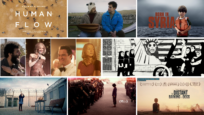
UNHCR recommends: films on forced displacement that will not leave you indifferent
20 Jan 2022Movies allow us to look through the window and get a glimpse of a better understanding of others. A girl next door who wears a hijab and buys fresh bread every morning, a baker who goes to church every Sunday, children in the street chattering in an unfamiliar language, and […]
-

Model UN Refugee Challenge
9 Dec 2021UNHCR is challenging Model United Nations delegates worldwide to debate the major issues related to forced displacement.
-

“I just want to live”. New theatre play depicts the lives of forcibly displaced persons in Ukraine
6 Dec 2021“A few months ago, I met with Ali, a young refugee from Afghanistan. He brought to the meeting a 40-page long text he wanted to turn into a theatre play,” recalls Slava Zhyla, Director of the Kyiv Academic Theatre “Actor”. At the time, images of turbulence in Afghanistan after the […]
-
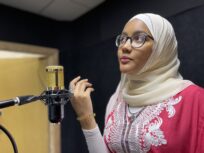
Forcibly displaced children record audio tales from around the world to promote inclusion and diversity in Ukraine
3 Dec 2021Special program for children and teens represents Ukraine’s rich diversity of cultures
-
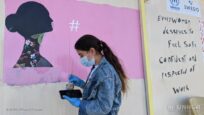
UNHCR NGO Innovation Award 2022
26 Nov 2021Strengthening local responses led by Women-Led Organisations (WLOs)
-
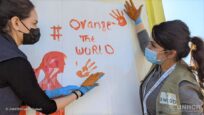
UNHCR urges support to address worsening gender-based violence impact on displaced women and girls
25 Nov 2021Survivors must be supported to heal and recover, and perpetrators must be brought to justice.
-

UNHCR: Conflict, violence, climate change drove displacement higher in first half of 2021
12 Nov 2021UNHCR publishes annual worldwide data on forced displacement each June in its Global Trends reports.
